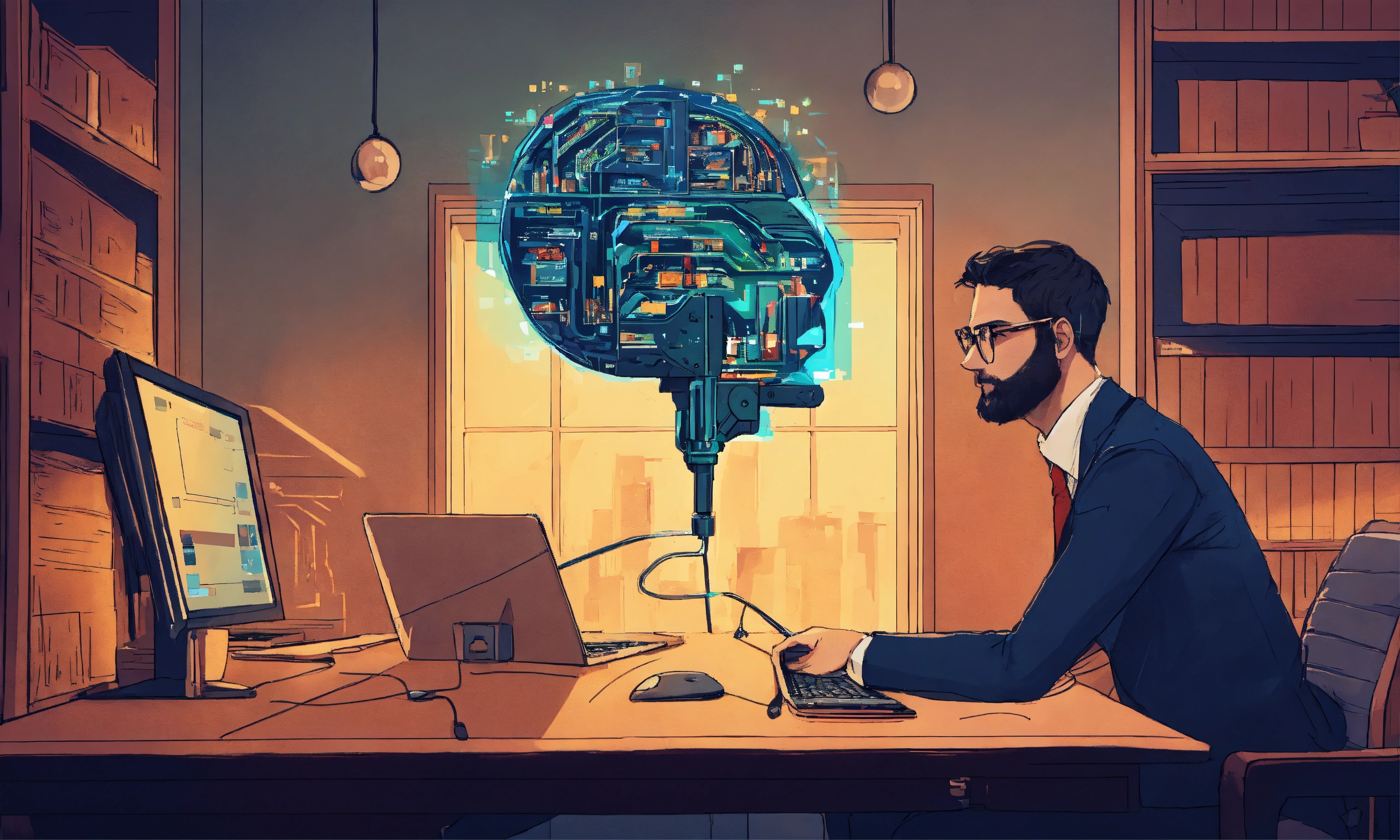With advancements in artificial intelligence transforming everyday life, it’s vital for you to understand how these changes are shaping various sectors. AI is not just a technical novelty; it’s becoming integral to how businesses operate, enhancing decision-making, streamlining operations, and improving customer experiences. From healthcare to finance, AI algorithms are being applied to solve complex problems and unlock new capabilities. As you explore this topic, you’ll gain insight into the practical applications of AI and how it is revolutionizing the world around you.
Understanding Algorithms in AI
Before submerging into the transformative applications of artificial intelligence, it’s imperative to grasp the foundational algorithms that power these technologies. Algorithms are systematic methods of solving problems and making predictions based on data. In AI, they enable machines to learn from experience, adapt to new information, and optimize their performance. Your understanding of these algorithms will provide valuable insight into how AI models operate and enhance your ability to utilize them effectively.
Machine Learning Fundamentals
Understanding machine learning is pivotal, as it forms the backbone of AI systems. In this domain, algorithms learn from data to identify patterns and make data-driven predictions. You can perceive machine learning as empowering computers to improve autonomously through experience without direct programming, which revolutionizes how we interact with technology.
Deep Learning Techniques
An advanced subset of machine learning, deep learning employs neural networks that mimic the human brain’s structure and function. These multi-layered networks excel in processing vast amounts of data, enabling remarkable advancements in areas such as image recognition and natural language processing. You’ll find that deep learning not only increases the versatility of AI applications but also enhances their accuracy.
Even as you explore the intricacies of deep learning techniques, it’s clear they have rapidly become imperative for complex problem-solving. For example, convolutional neural networks (CNNs) are particularly effective in image analysis, recognizing features in an image through multiple layers of filtering. Meanwhile, recurrent neural networks (RNNs) are adept at processing sequences of data, making them perfect for applications like speech recognition and language translation. By understanding these techniques, you can better appreciate the depth and potential of AI in solving real-world challenges.
Transformative Applications of AI
If you think about the many ways artificial intelligence is being integrated into everyday life, you’ll notice its impact is profound. From education to autonomous vehicles, various sectors are leveraging AI to enhance efficiency, facilitate decision-making, and personalize user experiences. As these applications evolve, they promise significant transformations that can redefine industries and improve quality of life on a global scale.
AI in Healthcare
With advancements in AI, the healthcare sector is experiencing a paradigm shift. Machine learning algorithms are now capable of analyzing vast amounts of patient data, leading to faster diagnoses and personalized treatment plans. This ability to predict health issues enables caregivers to focus on preventive measures, ultimately improving patient outcomes and efficiency in care delivery.
AI in Finance and Banking
Above all, the finance and banking industries are harnessing AI to enhance decision-making and risk management. Algorithms can analyze market trends and customer data, allowing for more tailored financial products and services that meet your needs. These tools not only streamline operations but also fortify security measures against fraud.
It is through deep learning and predictive analytics that AI is revolutionizing finance. By assessing real-time data and customer behavior, AI systems enable faster loan approvals, fraud detection, and personalized investment advice. As a result, you can enjoy more efficient banking experiences and access to financial products that cater specifically to your preferences and risk tolerance.
AI in Everyday Life
Clearly, artificial intelligence (AI) is increasingly becoming an integral part of your daily routine. From smart home devices to advanced virtual assistants, AI is seamlessly integrating into your life, enhancing convenience, productivity, and your overall experience. As these technologies evolve, you may find that tasks once deemed mundane are now automated and optimized, providing you with more time to focus on what truly matters.
Smart Assistants and Home Automation
An array of smart assistants, like Alexa and Google Assistant, are transforming how you interact with technology in your home. With simple voice commands, you can control lighting, thermostats, and even appliances, creating an effortless living environment that adapts to your needs. This level of automation not only streamlines daily tasks but also contributes to energy efficiency, ultimately saving you time and money.
AI in Transportation and Autonomous Vehicles
Above all, AI is reshaping the way you think about transportation and mobility through the development of autonomous vehicles and smart traffic systems. These innovations aim to enhance safety, efficiency, and convenience, allowing you to experience a more seamless journey.
And as AI in transportation progresses, it is becoming a game changer for your commuting experience. Autonomous vehicles are being designed to handle complex traffic situations while minimizing accidents and optimizing routes. These advancements may lead to reduced travel times and lower emissions, making your daily commute not just easier but also more environmentally friendly. Furthermore, AI-driven public transit systems can adapt to your needs, ensuring that transportation is both efficient and accessible. As these technologies continue to evolve, you can look forward to a future where getting from point A to point B is safer, smarter, and more comfortable than ever.
Ethical Considerations in AI
Despite the tremendous advancements and potential benefits of artificial intelligence, it is vital for you to consider the ethical implications it raises. As AI systems increasingly influence decisions in various sectors—such as healthcare, finance, and law—your awareness of these concerns can guide the development of more responsible technologies. Navigating the complexities of AI ethics will not only help you understand its impact on society but also empower you to advocate for accountability and transparency in AI usage.
Bias and Fairness
Across many AI applications, biases in data can lead to unfair outcomes and reinforce stereotypes, affecting your trust in these technologies. As you engage with AI systems, it’s vital to understand how biases can distort decisions and perpetuate inequalities, emphasizing the need for systems that prioritize fairness and inclusivity.
Privacy and Security Issues
Across various AI applications, concerns regarding privacy and security pose significant challenges that require your attention. As AI systems often rely on vast amounts of personal data, ensuring that this information is handled responsibly is critical to maintaining your trust and safeguarding your rights.
Even as artificial intelligence continues to grow and evolve, the issue of privacy and security remains pressing. You should be aware that inadequate measures in these areas can lead to unauthorized access to sensitive personal information, potentially resulting in data breaches and misuse. Consequently, it’s vital for you to advocate for stringent data protection policies and for developers to prioritize security in their AI designs. By being informed, you can help create a safer digital landscape and foster a more secure environment as AI technologies integrate deeper into your daily life.
The Future of AI Technology
Now, as you explore the emerging landscape of AI technology, it becomes clear that advancements will continue to reshape industries, enhance productivity, and influence your everyday life. With greater integration of AI into various sectors, you can expect increased automation, improved decision-making, and smarter systems that enhance personal and professional experiences.
Emerging Trends and Innovations
Innovations in AI are rapidly evolving, with a focus on deep learning, natural language processing, and generative models that are redefining how we interact with technology. As these technologies advance, you will see applications that are more intuitive and user-friendly, making AI an integral part of your daily routine.
The Role of AI in Sustainability
At the forefront of addressing global challenges, AI plays a vital role in promoting sustainability across various sectors. You can leverage AI to optimize resource use, reduce waste, and enhance environmental conservation efforts in your personal and professional life.
With data-driven insights and predictive analytics, AI empowers you to make informed decisions that contribute to sustainability goals. By analyzing patterns and identifying inefficiencies, AI tools help you reduce carbon footprints and manage resources more effectively. As industries adopt these technologies, you’ll find an increasing array of opportunities to participate in sustainable practices, ultimately supporting a healthier planet for future generations.
To wrap up
Conclusively, as you explore the transformative landscape of AI, it’s clear that algorithms are not just backbone technologies but important tools reshaping various industries. From enhancing your daily tasks to powering innovations in healthcare, finance, and entertainment, AI is weaving itself into the fabric of your life. Embracing this change not only equips you for the future but also empowers you to leverage the full potential of technology to improve your decision-making and productivity. As AI continues to advance, staying informed will be key to harnessing its capabilities effectively.




